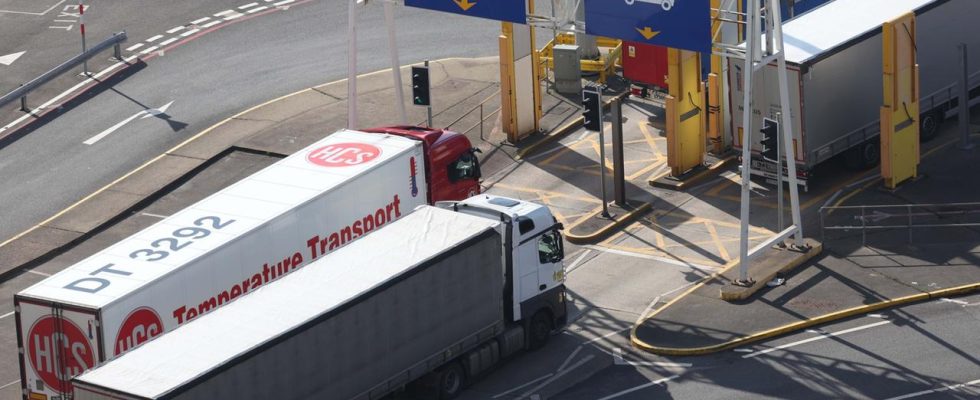Postponed several times, now it starts: Great Britain controls goods imported from the EU. Animal and plant products are affected. Traders are worried – and fear new chaos.
More than three years after Brexit, Great Britain is today starting physical controls for EU imports of animal and plant products. This was confirmed by the responsible Ministry of Agriculture. In addition, food importers have to pay a fee of up to 145 pounds (around 169 euros) per load on some products such as sausage, cheese and yoghurt, but also cut flowers.
Experts and companies warn of longer delivery times, more bureaucracy and higher costs – which the people of Great Britain will ultimately have to bear. According to calculations by credit insurer Allianz Trade, the new Brexit regulations could cost British companies up to two billion pounds and fuel inflation. Import costs would increase by ten percent in the first year.
Checks postponed several times
The controls that were introduced in the EU immediately after Brexit have already been postponed several times in Great Britain. According to government information, there was a lack of infrastructure and personnel.
The “Politico” portal reported that there were still many questions unanswered immediately before the controls began. Commercial port operators have spent millions of pounds building inspection facilities and now have serious concerns about how they will cover the costs of running them.
Great Britain left the EU at the end of January 2020. After a transition phase, the country has no longer been a member of the EU internal market and the customs union since 2021. A contract agreed at the last second ensured a largely barrier-free trading partnership. However, there were many problems in trading, especially at the beginning. Traders also complain about more bureaucracy and new tariffs in some areas.
Trade associations worried
The British Ports Association and the British Chamber of Shipping warned that operators urgently needed access to a government IT system introduced after Brexit. Otherwise they would not know how many goods they had to invoice and who they should invoice for this. Several trade associations fear new chaos at borders and costs, especially for small and medium-sized companies.
“The British government is fully confident that the facilities, infrastructure and systems at the border will be ready for the introduction of the new border controls on April 30th,” said the Ministry of Agriculture.

